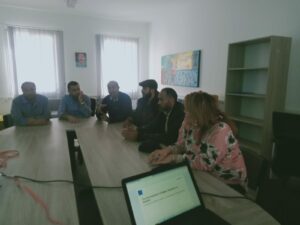










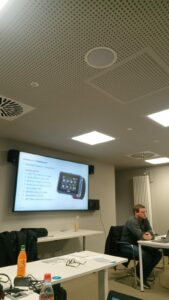
















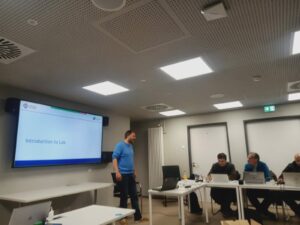
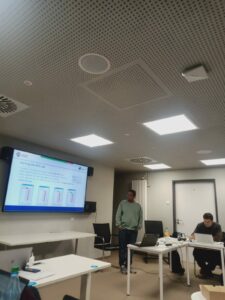
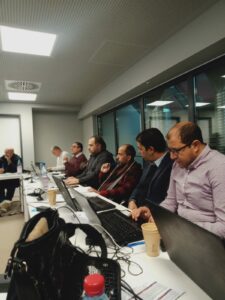
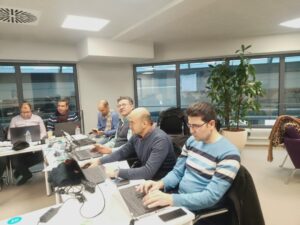
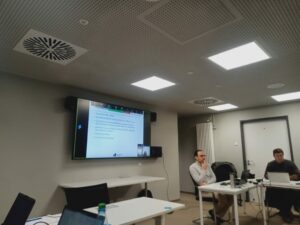
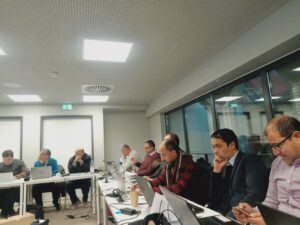
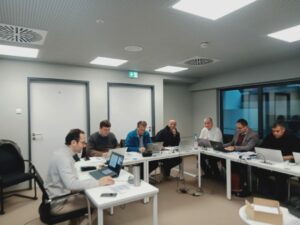
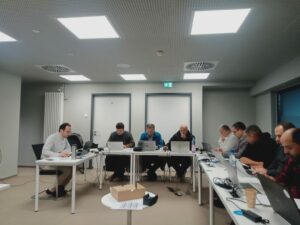
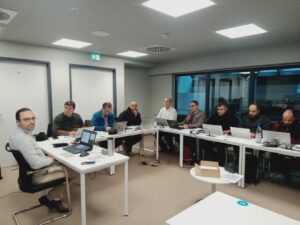
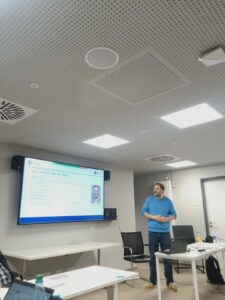
The training, which was initially realized in KTH, has been repeated by the team of the university of Carthage on the 18th of November 2022 at the higher institute of applied sciences and technology of Mateur (ISSATM) for a group of 10 teachers with different backgrounds. In fact, the duplication session has aimed to present many relevant tools for enhancing higher education, which have been discovered by the CU team during the KTH training. After deep discussion between the presenters and the teachers, participants have appreciated the presented tools, notably those dealing with quality assurance as well as sustainable development. However, they have pointed many divergence points with regards to the actual approach used in ISSATM. Thus, many teachers have expressed their intention to adopt some discussed tools, especially that these tools allow a cost-effective development of the education process at ISSATM.
